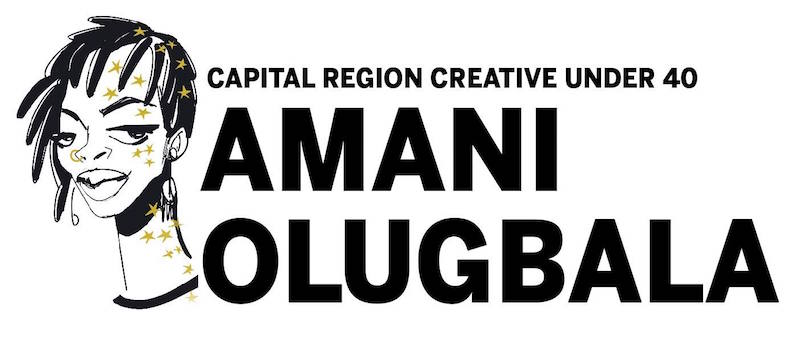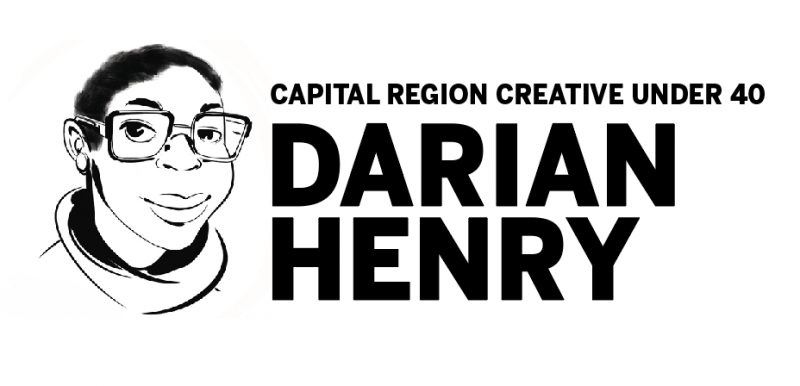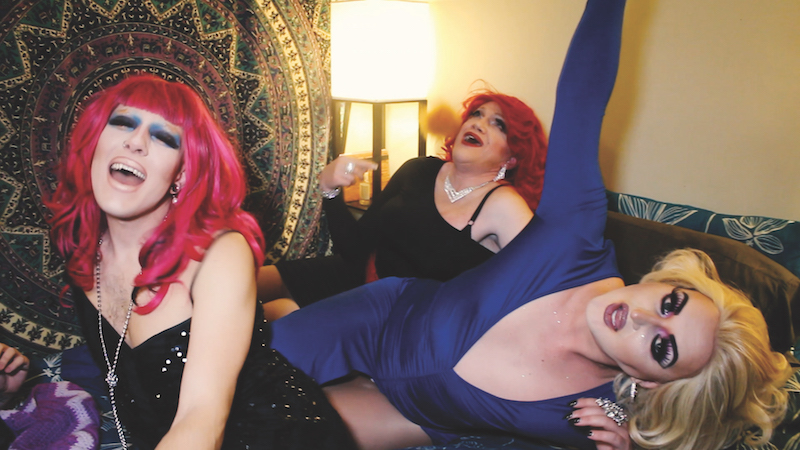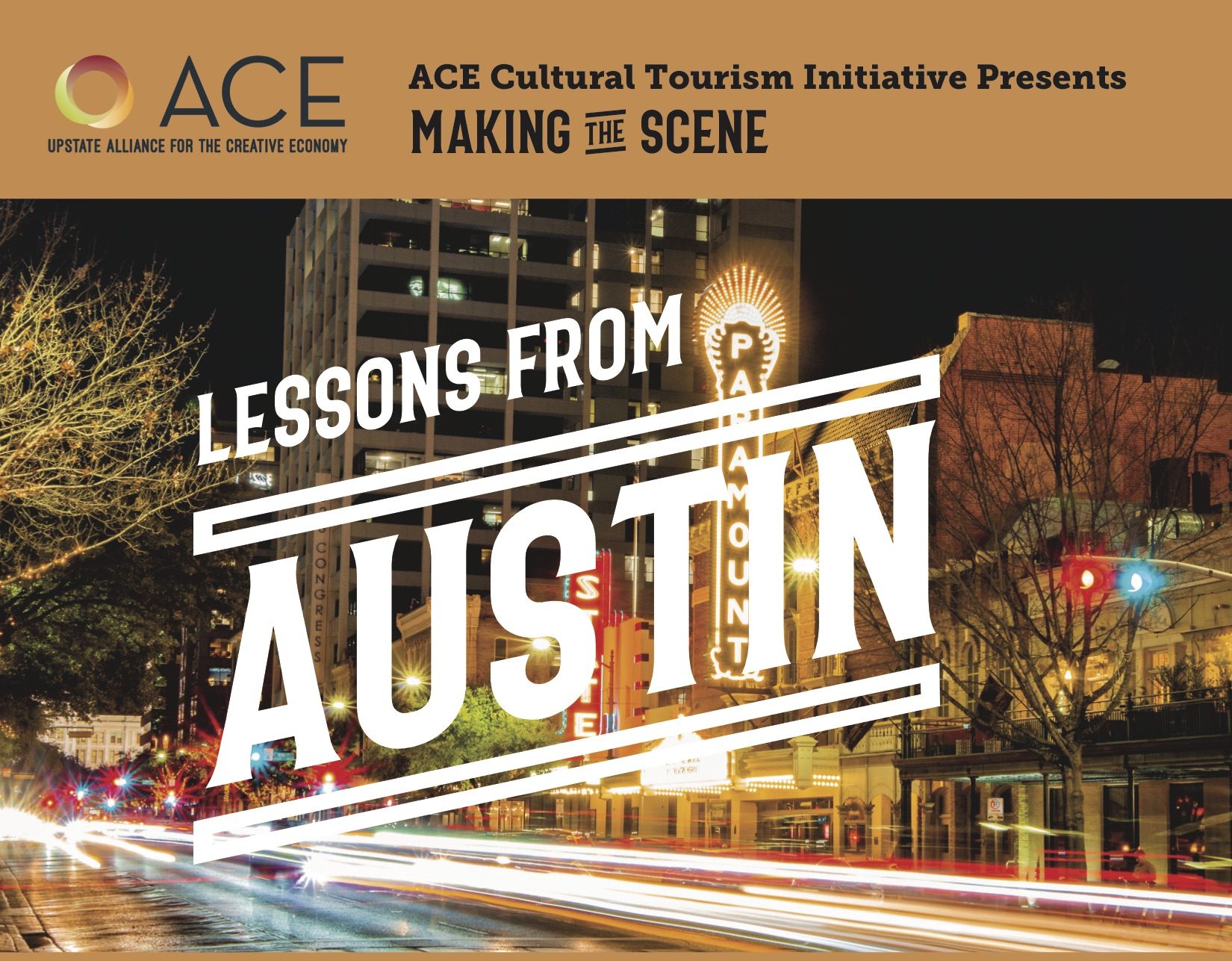Art by Arzu Fallahi. Photo by Richard Lovrich.
Amani O stormed the stage with Kat SoPoetic, her fellow femcee in KATANI, by her side to accept the best hip hop artist of the year award and what followed was a beautiful, captivating storm of words that simultaneously challenged centuries-old power structures and ingrained misogyny and at the same time felt uplifting, nurturing and empowering. It felt like the very air around her could catch fire. For a number of musicians and fans in attendance, the moment was acknowledgment of not only KATANI’s powerful and subversive tracks but of a culture of change and diversity that has taken hold in the region. Amani O Is a poet, an emcee, an activist, a teacher, and a constant presence at Soul Fire Farms.
More than that, she is someone who has created spaces and opportunities where none previously existed—and she’s done it by sheer force of will. Amani recalls how she found herself with a lot to say after extricating herself from a toxic relationship. She turned to the open mic scene and has absolutely taken over.
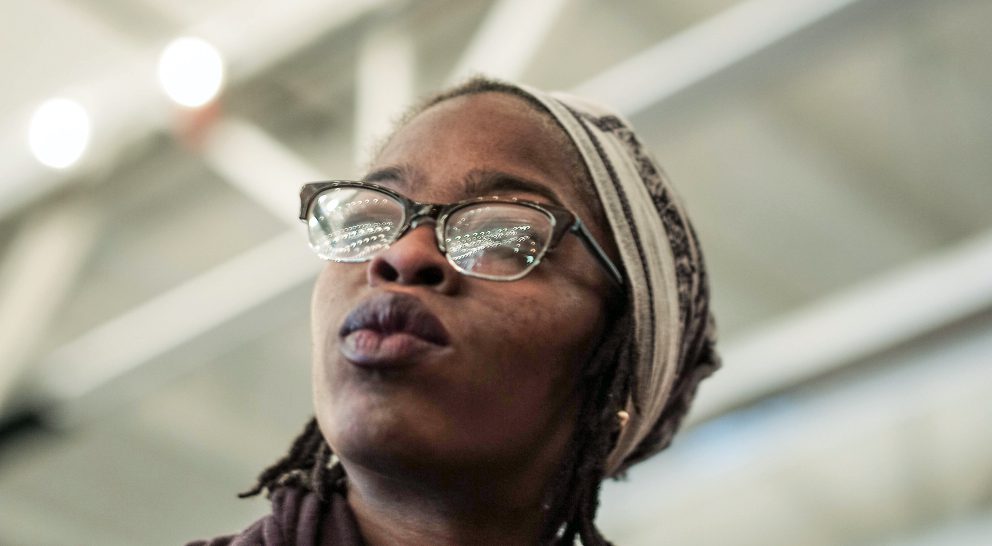
We spoke to musician and activist Taina Asili about Amani’s work the morning after The Eddies. “Last night people spoke about MotherJudge and the beautiful way she brought people together and Amani is someone who also does that for our community with her open mics, especially for people of color.”
Asili says that Amani is also advancing area hip hop by incorporating political and social commentary and directly challenging male artists to abandon stereotypical misogynistic tropes.
“Albany has had a hip hop scene that has been going strong for a long time but women in hip hop have been marginalized in this community. I think Amani, through KATANI, has done so much to bring women and nonconforming women to the center. She’s bringing the social justice message to the genre. What she has done with her music is amazing not just repping music but by weaving it with community activism along with her work with food justice at Soul Fire Farm and her work against mass incarceration,” says Asili.
What would Amani O suggest for people who feel like the doors aren’t quite open for them yet? Or that they don’t have a place in the Capital Region?
“We are such a small community that is really intimately connected. Through collaboration and creation you can have the thing you are looking for. I understand alienation. People feel like they don’t have people, they don’t have support. It’s not true. There are folks willing to join in, to help them create their space.”

